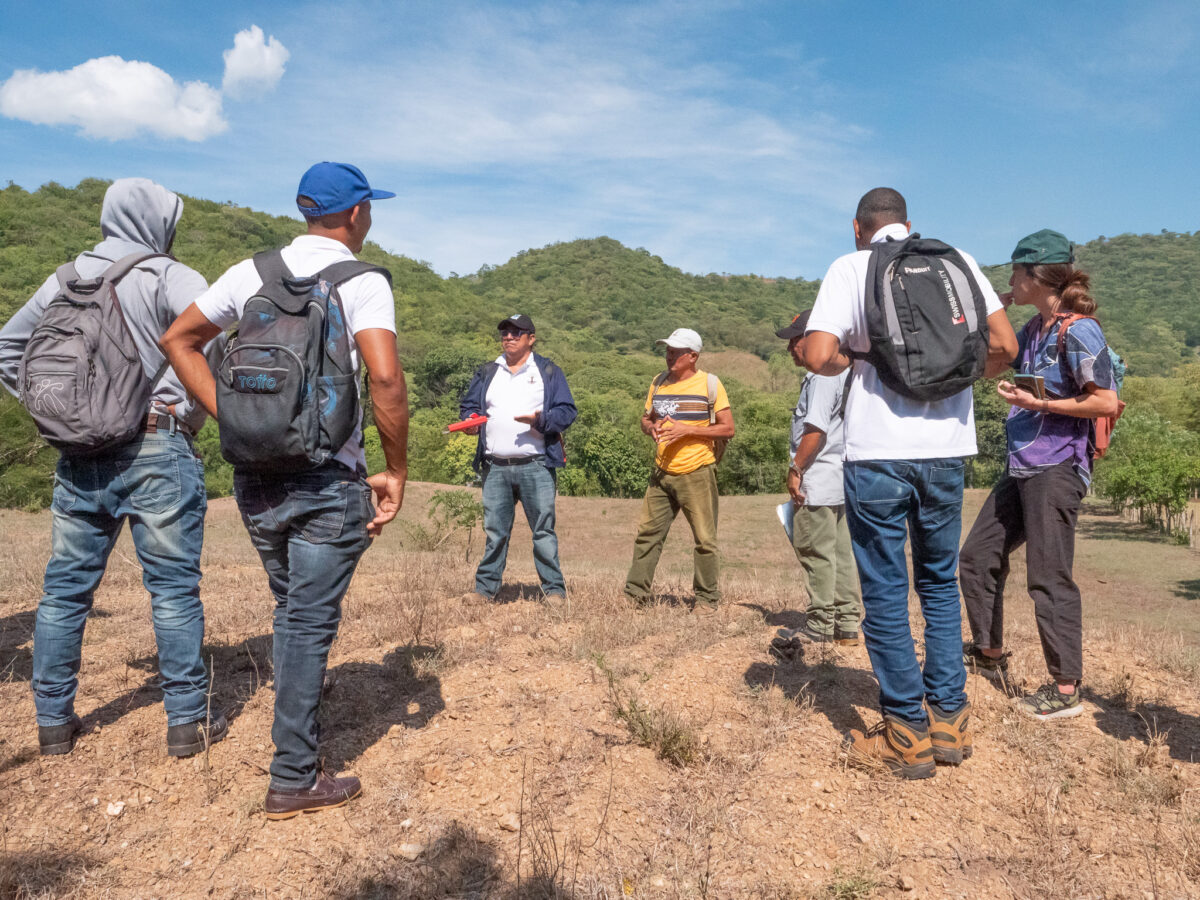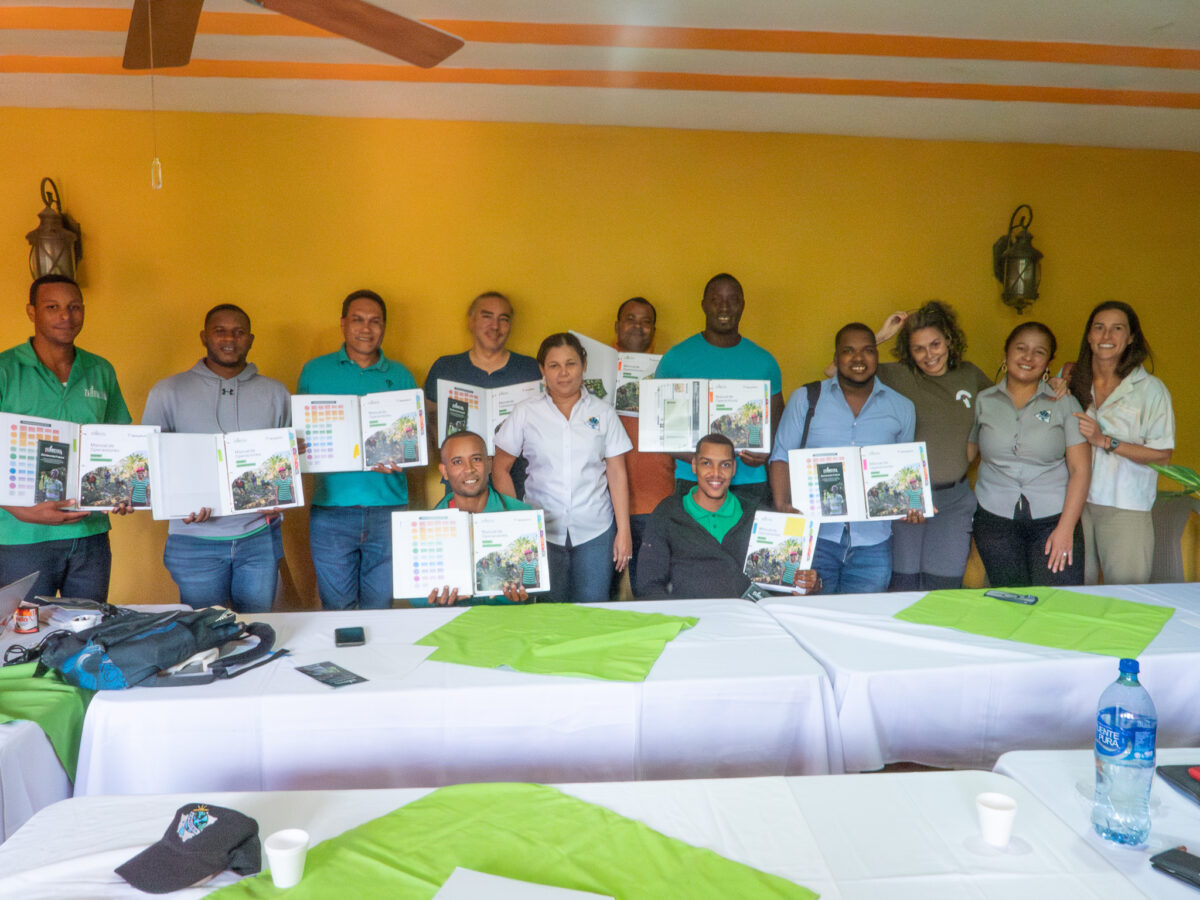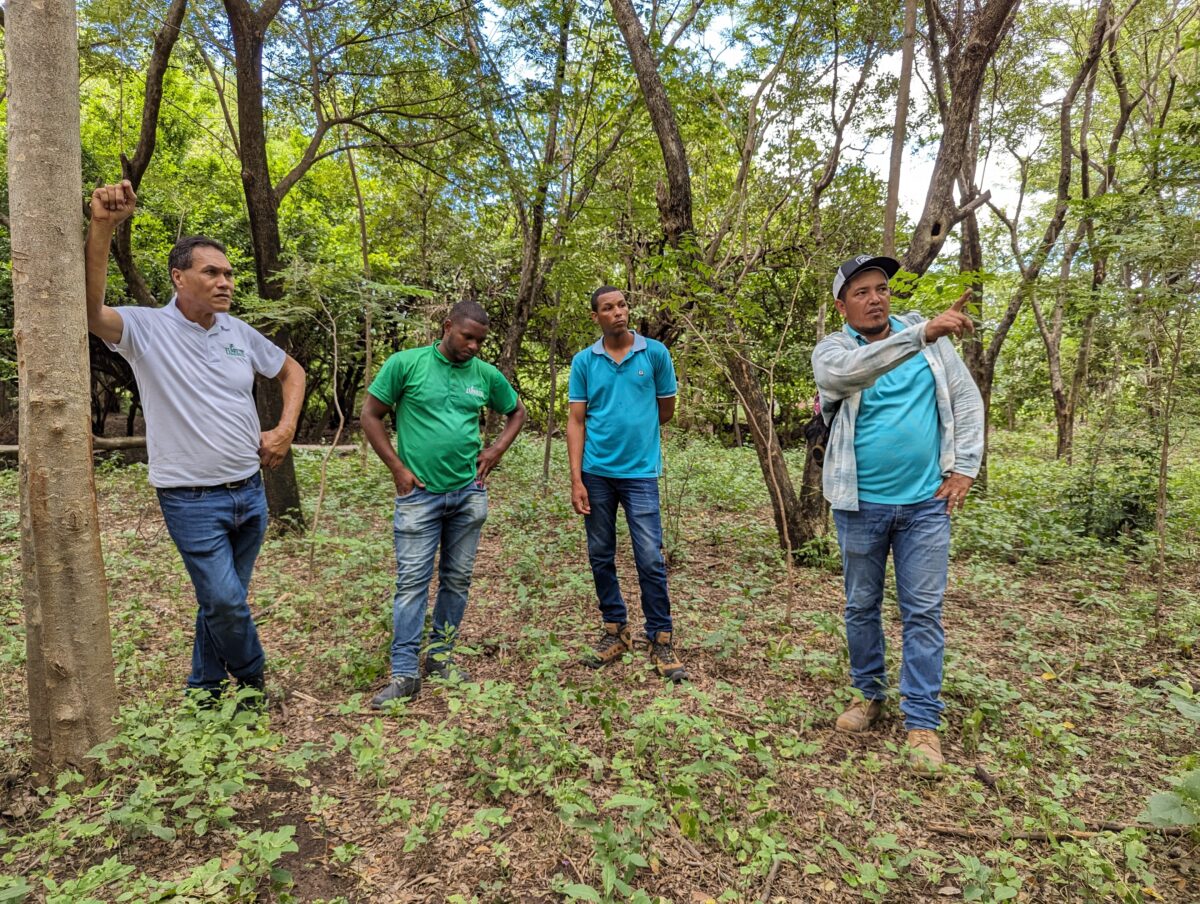For smallholder forest carbon removal projects such as CommuniTree, their success is dependent on local teams of project implementers supporting local communities to successfully grow trees. The scale of the task these teams face cannot be underestimated. Community owned nature-based solutions are only made possible by the connection and trust built between project implementers and local land stewards. Often this involves working with thousands of individual land managers across rural regions and fragmented areas of land, all with unique human and geographic contexts. What’s more, teams must operate in a way which meets carbon integrity requirements to unlock the carbon financing required to fund their work and incentivize forest restoration activities.
Fostering a collaborative ecosystem
Given that project implementers around the world face similar challenges, immense value could be obtained from peer-to-peer knowledge exchange. That way, project implementers could share their successes and learnings with one another to integrate tried and tested best practices into their operations. Yet there is little opportunity to do so. “Collaboration between project implementers is rare in the world of forest restoration,” said Meredith Karazin, Taking Root’s Chief Growth Officer. “Cost, busy operational cycles, and a lack of project alignment are common barriers to interactive knowledge sharing.”
To help break down these barriers, Taking Root recently organized a training and orientation visit between APRODEIN and Floresta Incorporada. Taking Root has strong relationships with each organization. Our flagship project, the CommuniTree Carbon Program, was co-founded with APRODEIN, which runs operations locally. Their expertise has helped the project grow to the largest reforestation initiative in Nicaragua. In the Dominican Republic, Taking Root is partnering with Floresta Incorporada, an organization with over 30 years of community tree planting experience, to explore the viability of a carbon removal project to benefit more farmers in the future.
“In working with both APRODEIN and Floresta, we saw just how much each organization could learn from each other’s experiences,” added Karazin. “Bringing the two organizations together enabled the exchange of knowledge and learnings to inform their work restoring forests with smallholder farmers.”

“An unforgettable experience”
In October of last year, nine team members from Floresta made the trip from the Dominican Republic to Nicaragua. The teams visited some of CommuniTree’s parcels, held workshops, spoke to farmers, and job shadowed each other. For APRODEIN, it was useful to learn more about cacao agroforestry systems planted by Floresta in the Dominican Republic. This prompted discussions as to how such systems might be adopted in Nicaragua’s wet regions, which currently show greater resilience to climate change than the country’s dry regions. For Floresta, the team gained a thorough understanding of what it takes to run a carbon removal project across an entire country.
“We learnt about CommuniTree’s forest design, recruitment, and the way APRODEIN works, and we will apply these learnings to cacao agroforestry systems in the Dominican Republic”, said Josue Victor Plecibiz, one of the Floresta technicians who joined the trip. “It was an unforgettable experience, and I will put all this knowledge into practice to improve the lives of people in other communities.”

Key learnings for a successful forest carbon removal project
From their discussions, the teams highlighted two key factors for success in implementing a forest carbon removal project.
The first is the need to build strong, long-lasting relationships with project participants. APRODEIN technicians work closely with farmers for over a decade, with around 17 farm visits in the first year alone. Such contact is essential to guide a parcel to a ‘free to grow’ state, where the trees are well established and no longer have to compete for resources. Even after 10 years, APRODEIN continues to visit farmers to advise on sustainable forest management. All in all, it’s a significant investment of time to bring a parcel to success.
The second is the need to build strategy into every stage of the operational cycle. In CommuniTree, this cycle starts with target setting, followed by farmer recruitment, planting, monitoring and credit creation. Meticulous attention to detail is needed at every step to ensure the intended impacts are attained. Take recruitment, for example. Not all land is suitable for forest restoration, making it essential to have strict eligibility criteria for farmers wanting to join a project. Otherwise, the farmer and their parcel may struggle to succeed. This results in wasted resources for both the farmer and the local team, and negatively impacts the project’s integrity.

An ongoing need for collaboration and knowledge sharing
These teams shared many more learnings over the two weeks, with feedback from both APRODEIN and Floresta confirming that they found the experience hugely valuable. We are immensely thankful for everyone at APRODEIN, Floresta, and our own team for their commitment and hard work in making this trip so beneficial.
Going forward, our hope is that the exchange of successes, learnings and best practices becomes the ordinary, rather than the extraordinary. As an industry, we are so often guilty of working independently. Yet we have so much to learn from each other if we are only willing to collaborate and share our expertise. Doing so will enhance the effectiveness and impact of community-based nature restoration initiatives so that collectively we can grow more trees and improve more smallholder livelihoods.